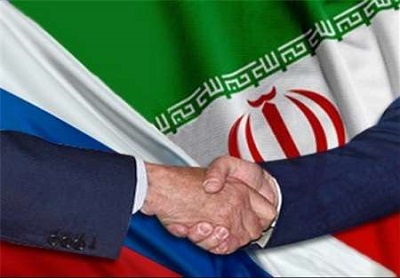National Iranian Gas Company (NIGC) and Russian gas company Gazprom signed a memorandum of understanding (MoU) on gas trade and investment Tuesday in a ceremony by Iranian co-chairman of Joint Economic Commission and Russian energy minister.
Managing Director of NIGC Hamid Reza Araqi and deputy managing director of Gazprom Alexander Medvedev signed the deal in the presence of Mahmoud Vaezi and Alexander Novak.
A Russian 30-member delegation paid a visit to Iran last January and first meeting for cooperation of the two companies was convened.
Given extensive dimensions of gas industry, it was decided by the meeting to form five working groups on various areas such as gas trade and research and development.
It was declared at the meeting that Iran has the capacity to make over $62 billion investment in gas sector in the coming years.
After a lapse of a year since the establishment of specialized working groups of NIGC and Gazprom, a cooperation deal was also signed by Araqi and Medvedev today.
 Russia developing most of Iranian oil fields, says Zangeneh
Russia developing most of Iranian oil fields, says Zangeneh
On the other hand, Petroleum Minister BijanZangenehsaid here on Tuesday that most of Iran’s oil fields are being developed by Russian companies.
Zangeneh made the remarks in a meeting with visiting Russia’s Energy Minister Alexander Novak.
He added Russia’s second-biggest oil producer Lukoil is cooperating with Iran for the development of the Mansouri and AbTeymour oil fields – both located in the southwestern oil-rich Khuzestan province.
Zangeneh underscored that the Iranian and Russian companies also inked two agreements to survey CheshmehKhosh and Changoleh oil fields in west of the country on Tuesday.
He also hailed Russia’s cordial collaboration with Members of Organization of Petroleum Exporting Countries (OPEC) for restoring tranquility to oil market.
On Dec 10, OPEC and non-OPEC member states convened ministerial meeting in Vienna for arrangements on output cuts.
OPEC member states in the 171st meeting decided to reduce oil production 1.2 million bpd from January 2017 to improve prices, elimination of the glut in the market and create market balance.
Non-OPEC member states agreed to reduce their oil production 600,000 bpd including Russia to cut oil production by 300,000 bpd and Mexico agreed to cut output by 150,000 bpd.
IRNA
R.S

